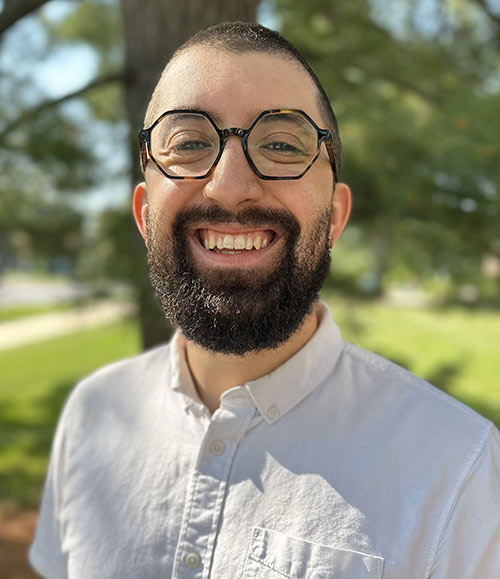Social/Personality Psychologist Dr. Ted Schwaba Joins Faculty
September 13, 2023 - Shelly DeJong
 The Michigan State University Psychology Department welcomes new faculty member Ted Schwaba, Ph.D., to their social personality psychology program. Dr. Schwaba who earned his doctorate from UC Davis, comes most recently from a postdoctoral fellowship at the University of Texas at Austin. Dr. Schwaba’s research specializes in personality genomics, lifespan personality development, and life experiences and personality development.
The Michigan State University Psychology Department welcomes new faculty member Ted Schwaba, Ph.D., to their social personality psychology program. Dr. Schwaba who earned his doctorate from UC Davis, comes most recently from a postdoctoral fellowship at the University of Texas at Austin. Dr. Schwaba’s research specializes in personality genomics, lifespan personality development, and life experiences and personality development.
“MSU is the place to be for personality research, and I’m excited to be working alongside the experts in this program,” said Dr. Schwaba. “I’m happy as a clam to be here, to continue being a personality nerd, and to continue my research.”
Originally from Chicago, Dr. Schwaba discovered personality psychology as an undergraduate at Northwestern working with Dr. Dan Mroczek. Through his graduate program and postdoctoral fellowship, he explored his interest in personality development and genomics.
"One of the first questions I like to ask people is ‘Are you the same person now that you were 10 years ago?’ It’s fascinating to me how people answer that. Personalities are always changing a little bit and I’m interested in how and why someone became themselves.”
By applying modern statistical tools to large datasets, Dr. Schwaba examines how life events, genetic differences, and daily experiences make us who we are.
Dr. Schwaba is the lead analyst for the Revived Genomics of Personality Consortium, a collaborative effort to link genetic variants to personality differences. The Consortium has combined 46 different samples to examine how DNA predicts personality traits. Combined, their sample size is around 850,000 people who have had their genotypes measured.
“We’re identifying the first ever genetics variants -- the As, Cs, Ts, and Gs in our DNA -- that predict a person’s agreeableness and openness to experience.,” said Dr. Schwaba. “This is something that no group has ever done before. But with the power of big team science, with 46 groups coming together, we can learn a whole lot about the origins of personality traits.”

